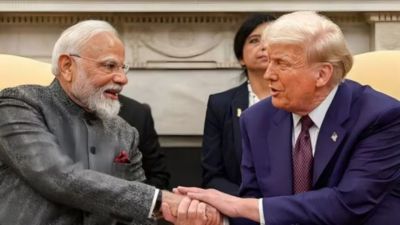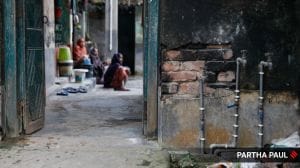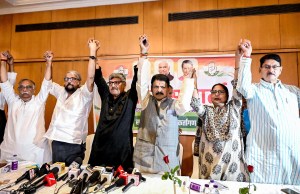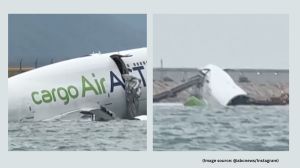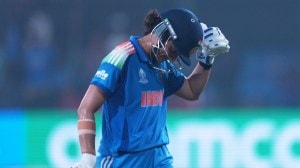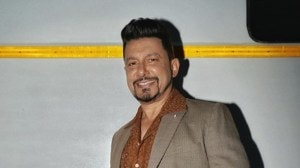Gen’s latest spin on N-leaks: US should have told me earlier
President Pervez Musharraf acknowledged for the first time on Monday that he had suspected for at least three years that the country’s ...

President Pervez Musharraf acknowledged for the first time on Monday that he had suspected for at least three years that the country’s top nuclear scientist was sharing nuclear technology with other countries, but argued that the US had not given him convincing proof.
In an hour-long interview, Musharraf shared blame for the delay with Washington, saying it was not until October that US officials provided him evidence of the activities of Abdul Qadeer Khan. ‘‘If they knew it earlier, they should have told us,’’ Musharraf said. ‘‘Maybe a lot of things would not have happened.’’
At the same time, Musharraf said he had seen signs that Khan was sharing nuclear technology, including ‘‘illegal contacts, maybe suspicions of contacts’’, and ‘‘suspicious movement’’ connected to Khan’s laboratory. But he said he was concerned that investigating Khan, a national hero in Pakistan, could provoke a political backlash. ‘‘One couldn’t outright start investigating as if he’s any common criminal.’’
In Washington on Monday, a senior Bush administration official acknowledged that Musharraf was not given highly specific information about Khan’s activities until last fall. But the official noted that the US conveyed more general warnings about Khan’s activities starting 2001. On Wednesday, President Bush is expected to give what one senior official at the White House described as a ‘‘lengthy, detailed speech on what must change in the area of stopping proliferation’’. He is expected to include new proposals for dealing with rogue scientists and countries that are not now members of the Nuclear Nonproliferation Treaty—a delicate subject, because India and Israel, like Pakistan, have refused to sign. Musharraf said he forced Khan to retire from his post as head of a nuclear weapons lab in March 2001 to prevent him from transferring any more nuclear secrets. This is the first time Musharraf has cited Khan’s nuclear activities as the reason for his departure.
‘‘We nipped the proliferation in the bud, we stopped the proliferation,’’ Musharraf said of Khan’s removal. ‘‘That is the important part.’’ The President attributed his protectiveness towards the scientist to Khan’s national stature and to political realities in Pakistan. ‘‘Since he had acquired a larger than life figure for himself, one had to pardon him to satisfy the public,’’ Musharraf said. The President said that after he had centralised oversight of the country’s nuclear programme in February 2000, he received reports from a scientist that raised concerns about ‘‘some proliferation activity’’. He also confirmed earlier reports that Pakistani agents had raided a cargo plane used by Khan in 2000, but had found nothing. But Musharraf seemed to have few answers about how Khan operated freely in a country where the nuclear arsenal is considered its greatest single asset. He added that the brigadier general in charge of security for Khan’s top-secret laboratory never reported anything. ‘‘He didn’t, and frankly, he hasn’t even now,’’ Musharraf said. ‘‘He in fact has said that yes, he regrets that he was inefficient, he couldn’t unearth, he didn’t know… He is being investigated for at least inefficiency.’’
Musharraf emphatically denied reports by US intelligence officials that Khan had struck a barter agreement with North Korea in which Pakistani nuclear technology was exchanged for North Korean ballistic missile technology. He said Pakistani cargo planes spotted in North Korea in July 2002 were picking up surface-to-air missiles that Pakistan had purchased at the height of tension with India.He added that the government was ‘‘still looking into the details’’ about what, beyond designs, had been transferred to North Korea. While he earlier said he would shield Khan from the International Atomic Energy Agency, Musharraf softened his position slightly on Monday, saying: ‘‘We need to think about it.’’ But he seemed ambivalent about whether Khan was victim or villain, patriot or traitor. ‘‘I don’t know whether Dr A Q was using the underworld or the underworld was using A Q,’’ the General said at one point.
— (The New York Times)





- 01
- 02
- 03
- 04
- 05


